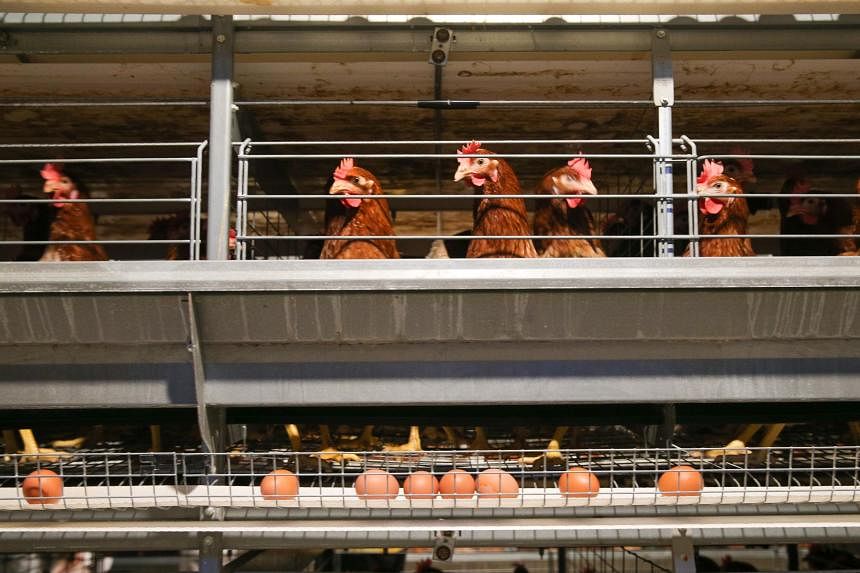KUALA LUMPUR – Prime Minister Anwar Ibrahim on Friday announced the lifting of price controls on chicken and eggs, and increased funding for the agricultural industry in an effort to boost food security.
“Since February 2022, the government has spent RM3.8 billion (S$1.1 billion) on chicken and egg subsidies. The original intent of the temporary subsidies was to control the prices of chicken and eggs that surged, as well as to overcome shortages,” said Datuk Seri Anwar in his budget 2024 speech.
“Current trends show that the prices of chicken and eggs are starting to stabilise and are below ceiling prices. Thus, prices will be floated so that the local market can function freely in ensuring a sufficient supply of chicken and eggs in the market.”
Malaysia was hit by supply shortages and price hikes for key food items such as chicken, eggs, rice and cooking oil that started in early 2022, partly due to the Ukraine war that interrupted global shipments of wheat and corn – both ingredients of chicken feed.
Economists and industry players had urged the Malaysian government to remove the subsidies for chicken and eggs and allow market forces to determine prices, which will ensure sufficient supply.
“If the price is fixed and is below production costs, production will be reduced, leading to a shortage,” economist Nungsari Ahmad Radhi told The Straits Times.
But still, some are worried that removing price controls could lift prices beyond what a normal household can afford, with chicken and eggs typically being the cheapest protein available.
A 53-year-old housewife who wanted to be known only as Lena said: “Then what are we supposed to eat? Fish and beef are already expensive.”
Mr Anwar, who is also Finance Minister, said the details of the scrapping of price controls on poultry and eggs will be announced by the Agriculture and Food Security Ministry in two weeks.
In other moves to bolster food security, Mr Anwar said the government is set to spend RM2.6 billion on subsidies and incentives to support farmers and fishermen, an increase of RM600 million from 2023.
The government will dish out RM3 billion to modernise the irrigation infrastructure and improve padi production to be less reliant on rice imports.
The authorities are also looking into increasing rice production to five seasons within two years in several states, including Perak, Perlis and Kedah.
Malaysia’s current padi output is based on two seasons a year – or four times within two years – meeting just 70 per cent of domestic consumption. The government spends more than RM1 billion a year to import over one million tonnes of rice to make up for the shortfall.
A total of RM50 million will also be allocated to supply 50,000 rice farmers with bio- and organic fertiliser to enhance soil fertility, Mr Anwar said.
Another RM400 million will be allocated for a food security programme that will focus on increasing the production of local food crops.
However, it remains to be seen if the measures announced by the Premier will prove to be effective.
“Technology is also crucial and will be the barrier that needs to be overcome if the agenda is to be more successful,” Dr Nungsari said.
The technology needed includes research on soil, seeds and agro-engineering. It also requires skilled people, he pointed out.


